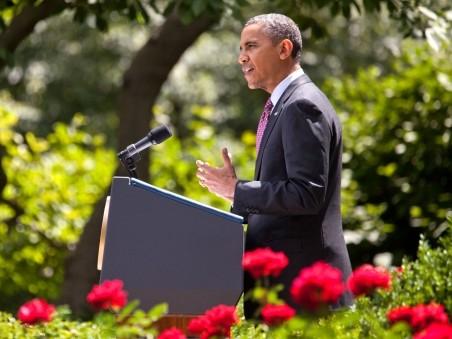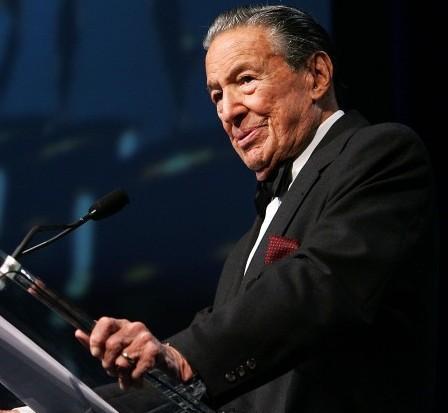A farewell ceremony was held Thursday morning at the Pentagon to commemorate the service of retiring Secretary of Defense Robert Gates. At the ceremony, President Barack Obama awarded Gates the Presidential Medal of Freedom, the highest possible civilian award.
Keynote speakers at the ceremony included Obama and Chairman of the Joint Chiefs of Staff Adm. Michael Mullen.
Gates was first called upon by former President George W. Bush to take up his current post of defense secretary on Dec. 18, 2006, following then-Secretary Donald Rumsfeld’s resignation. At the time, he had been serving as the president of Texas A&M University.
As defense secretary, Gates was commended by many for his integrity and pragmatic style, although he was also criticized by others for being too pragmatic, subservient to the president, and lacking a vision of his own.
Speaking before audience members at the Pentagon on Wednesday, Adm. Mullen lavished admiration and praise on his civilian colleague.
“Secretary Gates has led our military in this time of war with impeccable skill and integrity and a staunch commitment to truth-telling, no matter how tough or even how uncomfortable that truth might be,” said Mullen.
“In that regard, but in so many others as well, he mirrors perfectly the pragmatism and the grit of our troops downrange.”
President Obama also praised Gates for his integrity and pragmatism, and lauded Gates for his earnest effort to control wasteful Pentagon spending.
“When institutional inertia kept funding systems our troops didn’t need, Bob Gates launched a war on waste, challenging conventional wisdom with courage and conviction, speaking hard truths and saving hundreds of billions of dollars that can be invested in the twenty-first century military,” said Obama.
Serving Republicans and Democrats
With his retirement, Gates will become the fifth-longest-serving secretary of defense, having spent four and a half years in that position. He is also the only secretary of defense in history to have served both Democratic and Republican administrations.
His government career comprises over 40 years of public service and spans the administrations of eight presidents.
While a graduate student at Indiana University, Gates was first recruited by the CIA in 1966, and was commissioned as a second lieutenant in the U.S. Air Force in 1967.
Subsequent posts have included stints during the Reagan and George H.W. Bush administrations as both the deputy director and director of Central Intelligence (the top two positions in the CIA), as well as deputy national security adviser.
During his tenure as secretary of defense, Gates garnered a significant amount of bipartisan approval from Democratic and Republican lawmakers.
He assumed the post of defense secretary in the aftermath of Rumsfeld’s resignation, and inherited two foreign wars in Iraq and Afghanistan. He directed the 2007 Iraq troop surge that is usually credited with decreasing the levels of violence in that country and turning the tide of the war. He also played a role in devising and overseeing Obama’s Afghan troop surge, which was implemented in early 2010.
Speaking after the chairman and the president on Thursday, Gates described how honored he was to serve as civilian head of the Defense Department. “Serving as secretary of defense has been the greatest honor and privilege of my life,” he said. “For that I was always be grateful.”
After leaving public service, Gates plans to retire to his home in Washington State. He will be replaced by former head of the CIA Leon Panetta.
The Pentagon that Gates is leaving behind is currently in the midst of a transformational period. As the wars in Iraq and Afghanistan wind down, the military will also likely be facing substantial budget cuts, while senior military leaders envision a smaller and leaner military force for the future.
Farewell Ceremony Held for Gates at Pentagon
A farewell ceremony was held Thursday morning at the Pentagon to commemorate the service of retiring Secretary of Defense Robert Gates.
|Updated:



